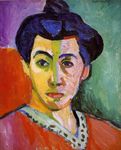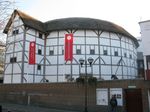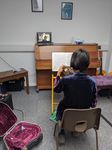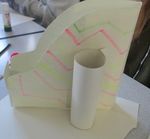YEAR 7 - Castle Newnham School
←
→
Page content transcription
If your browser does not render page correctly, please read the page content below
YEAR 7
Curriculum Newsletter
Welcome to our Year 7 Reminders/Key dates:
Spring term curriculum ENGLISH (cont…) Spring term 2021
newsletter. 5 January - 26 March
In this introduction I would like to focus on After half term, pupils will study Poetry, Half term
home learning (previously called home- with a focus on poetry from a wide range 15 February - 19 February
work) and its place in supporting learning of cultures. Pupils will read poems from
happening in school. Easter Holiday
the following poets: John Agard,
29 March - 12 April
Throughout the secondary years we Benjamin Zephaniah, Tatamkhulu Afrika, (returning on the 13 April)
support pupils in developing their Niyi Osundare, Grace Nichols, Imtiaz
independent learning skills so that when Dharker, Lawrence Ferlinghetti, Sujata Parents’ evenings
they reach Key Stage 4, in year 10, they Bhatt, Tom Leonard and Moniza Alvi. The (TBC)
are able to access and revise work focus of this unit is to explore a variety of 4 March (1 of 3)
covered in lessons independently. We different perspectives and attitudes to 10 March (2 of 3)
work towards this by expecting pupils in culture, with the pupils developing their 18 March (3 of 3)
Year 7 to complete the tasks set on analytical writing skills in their final essay.
Satchel One, in learning to meet deadlines
and organise their time effectively. What can you do to support your child?
Talk to them about words. Ask them about PLEASE NOTE!
Parents are able to sign in and monitor
homework being set, see deadlines and the new words that they are encountering Planned curriculum
feedback on completion. Login details for in English lessons and in their tutor time may be subject to
this were sent out last term, but should vocabulary sessions. Encourage them to some changes in
you need to access them again please use them in conversations that you have order to support
email secoffice@castlenewnham.school with them. remote learning.
It is really important to challenge the myth Wider reading:
that lots of homework being set by a
school equates to high standards and On the Key Stage 3 Bitesize website, you
expectations. In fact, research has clearly can read up on different poetic forms and
shown that short sharp bursts of home- structures - follow this link:
work, requiring pupils to review https://www.bbc.co.uk/bitesize/topics/
knowledge, practise their understanding or zmbj382
recall key information, is much more Test your knowledge of a range of poetic
effective. terminology here:
The newsletter was written prior to lockdown but https://www.purposegames.com/game/
the content being taught this term remains poetry-terms-quiz-quiz
unchanged.
Some of the poems your child will study
used to be on the old GCSE syllabus - use
ENGLISH the following link to read up on some of
them:
https://revisionworld.com/a2-level-level-
revision/english-literature-gcse-level/
What are we doing this term? poetry/poems-other-cultures-traditions
Pupils will be introduced to Shakespeare
this term. This unit will give pupils an
overview of Shakespeare’s life and times,
The Globe Theatre and the different types
of plays and poems that he wrote. This
unit will also give pupils the basic
information to allow them to access the
reading of full plays in Years 8, 9 and 10.
SpringYear 7
SCIENCE GEOGRAPHY
Year 7 will continue studying their new ‘Activate’ scheme Our first topic this term is ‘What’s Beneath Our Feet?’ –
of learning. Our study of rocks and soils. We will be learning about
types of rocks and how they are linked in the rock cycle,
Pupils will cover interdependence and plant together with the landscapes they form and why. This
reproduction, acids and alkalis and the basics of will be followed with soil and its link with rock. Having
electricity up until Easter. learned about contour lines, what they tell us and how,
With strict COVID guidelines in place, some lessons will we will apply all of our learning in a decision making
be returning to the science labs so that pupils can take exercise based on a real farm in Wales. We shall see if
part in practicals and further develop their ‘how science pupils and the farmer agree about how best to use the
works’ skills. land!
Following this we start our topic ‘Water Power’, with a
focus on rivers, their processes and how these shape
MATHS our landscapes. This topic will end with an in-depth
study of the causes and effects of flooding, together with
human response to this.
The Year 7s have already got through so much this year Throughout the term, pupils will learn and use a variety
and are finishing this term by starting to explore the uses of geographical skills such as use of different types of
and intricacies of algebra. They have also had their first maps, interpretation of contour lines, how to explain a
assessment, so that within the department we can make pattern or process and decision making based on a
sure the resources we have can be deployed correctly to range of prior knowledge.
both support or extend pupils who require it. Moving into Homework quizzes will be set regularly on
2021, we will start to develop understanding of decimals ShowMyHomework. These quizzes are designed to help
and measures by giving pupils the opportunity to discuss pupils remember information – and for longer. Each quiz
and use measures in their work and solve problems needs to be completed at least two times and this is
using measurements and money. It is important that even more effective if attempts are spaced across a
pupils are well equipped to participate fully in these week.
lessons, so items like protractors, rulers and calculators
are a necessity.
To ensure pupils have sufficient time to recover over the
holidays, the maths department will not be setting
HISTORY
homework to be completed. However, we want to
re-emphasise the importance of supporting learning in
school with skills-focussed homework. Well done to the In year 7 this term, we will begin our final overview topic
many who have been doing this regularly. If your child is on the middle-ages focusing on the political events
having issues getting onto the Mathswatch VLE, then affecting the British Isles and internationally through the
please do not hesitate to contact me using: Crusades. Our pupils will also study the development,
malmen@castlenewnham.school. and use, of castles and their role in medieval society.
Happy New Year from all of the maths department.
ART
In the Spring term, Year 7 pupils will be looking at the
theme ‘People in Action’. They will start this topic by
looking at the figurative work of Henri Matisse and begin
PE to learn about the proportion
of the human body.
Throughout the topic, the
aim is to improve their
To begin the new calendar year, pupils will be getting proficiency and increase
stuck in with learning first aid. Once this part of the their confidence in drawing.
curriculum is complete, year 7 will move on to lacrosse, Pupils will then move on to
netball, table tennis or OAA (outdoor and adventure look at the work of the
activities) for the remainder of the spring term. For American artist Keith Haring
lacrosse, we do require pupils to wear a mouth guard and will work in groups to
and we recommend bringing spare shoes/football boots produce life-size mixed
and socks to change into, as this sport will be taught on media pieces in his style.
the field.
Please note - this is subject to change.
SpringYear 7
MUSIC MUSIC (cont….)
Year 7 have been learning all about music notation -
how to read the notes on the stave and how to read
rhythm notation. We have been putting this new
knowledge into practice by learning the notes on the
keyboard progressing through playing piano sheet music
of varying difficulties. Pupils will now look at how music
is structured and they will build on their knowledge of
music notation to explore performing and composing
contrasting sections in Binary (AB), Ternary (ABA), and
Rondo (ABACAD) form, using classroom instruments.
After half-term, Year 7 will be reintroduced to the
concept of pulse through a variety of experiences which
include pulse games and other rhythmic activities, the
creation of patterns, including ostinati, and repetitive
rhythmic textures – cyclic and polyrhythms, listening
activities and the composition and performance of class
and group rhythm pieces. They will develop their use
and understanding of music notation and use rhythm
notation to write their compositions down.
DRAMA
Year 7 will be exploring the dramatic form of Soap
Operas – looking closely at the structure of
performance and character, as well as staging
drama. Pupils will also have the opportunity to
develop their ability to use drama conventions and skills
in performance. At the end of the scheme of work, pupils
will devise their own soap opera and create their own
‘stock character’ using a character profile and other
techniques. Pupils will also have the opportunity to film
their soap opera scenes in the new TV and Film Studio,
in front of the green screen wall!
FOOD TECHNOLOGY
Year 7 will be enjoying double lessons this term.
Pupils have now had the opportunity to visit the newly
refurbished food technology classroom and have
enjoyed some cooking demonstrations and of course
some taste tests! As soon as it is safe to do so, pupils
will be cooking in smaller group sizes for the remainder
of the school year. The ingredients needed for these
lessons will be published on Sachel One, so please
make sure you have the relevant usernames and
passwords to log in regularly.
Pupils will learn how to use raw meat safely and make
dishes like spaghetti bolognaise, chicken goujons and
curry. We will also practise baking methods and learn
how to make bread, cakes and some delicious desserts.
Please help us by ensuring pupils are organised with
their ingredients and as always, please let us know if
you require support with this.
SpringYear 7
MFL RE
What are we doing this term? This half term pupils will be studying ‘What do people
believe about God and the Universe?’ This a
Pupils will begin by describing the school day, using
philosophical topic that will examine critically both
adverbs of time and the subject pronoun ‘we’ and will
religious and scientific explanations for the origins of the
then move on to talking about food and meals. Leading
universe and life. Pupils will study literal and liberal
up to half term, there will be an end of module test which
interpretations of religious stories and consider whether
will assess learning on the different aspects of school life
someone can both believe in God and accept scientific
that they started to cover towards the end of the Autumn
fact. After we have completed this topic, pupils will move
Term, and in more recent weeks. After the half term
on to examine Christianity, specifically focusing on why
break, pupils will talk about how they spend their free
Christians believe that Jesus was God incarnate.
time: they will use regular verbs to describe how they
use computers and mobile phones, and the different To support your child with their learning, it is important
parts of the verbs ‘play’ and ‘do’ to discuss sports and that they are aware of current affairs e.g. by watching
other activities. They will also look at how verbs change the news and discussing any ethical or philosophical
according to subject pronouns, in particular, ‘he’, ‘she’ stories.
and ‘they’. Towards the end of term, pupils will find out
about some of the most popular extreme sports in
French-speaking countries around the world. Design Technology
What can you do to support your child?
Helping your child does not mean having to know
French. Encourage them to become ‘word detectives’; Pupils will be looking into investigating a solution for
making links with English and other languages that they storage. Pupils have to find a problem that they have
know will help them to guess what words mean. Ask with storage in the home. When they have identified a
your child to teach you something in French; having a solution for their problem, they will design, develop and
skill that their parent does not have is a major boost for create a model.
pupils and can be very motivating. The most effective
way to learn vocabulary is by practising, little and often.
Some pupils prefer to use a vocabulary sheet, whilst
others prefer to use free language learning websites
such as Duolingo and Memrise.
Castle Newnham subscribes to the Pearson Active
Learn online resources. All pupils have an account and
teachers are setting homework on this site. We also
subscribe to the Linguascope website which is useful for
more general learning and practice; pupils wanting to
access this site at home should ask a member of the
Modern Languages team for the username and
password.
SpringYou can also read


























































